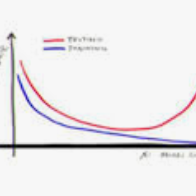Learning individualized treatment rules (ITRs) is an important topic in precision medicine. Current literature mainly focuses on deriving ITRs from a single source population. We consider the observational data setting when the source population differs from a target population of interest. Compared with causal generalization for the average treatment effect which is a scalar quantity, ITR generalization poses new challenges due to the need to model and generalize the rules based on a prespecified class of functions which may not contain the unrestricted true optimal ITR. The aim of this paper is to develop a weighting framework to mitigate the impact of such misspecification and thus facilitate the generalizability of optimal ITRs from a source population to a target population. Our method seeks covariate balance over a non-parametric function class characterized by a reproducing kernel Hilbert space and can improve many ITR learning methods that rely on weights. We show that the proposed method encompasses importance weights and overlap weights as two extreme cases, allowing for a better bias-variance trade-off in between. Numerical examples demonstrate that the use of our weighting method can greatly improve ITR estimation for the target population compared with other weighting methods.
翻译:暂无翻译



